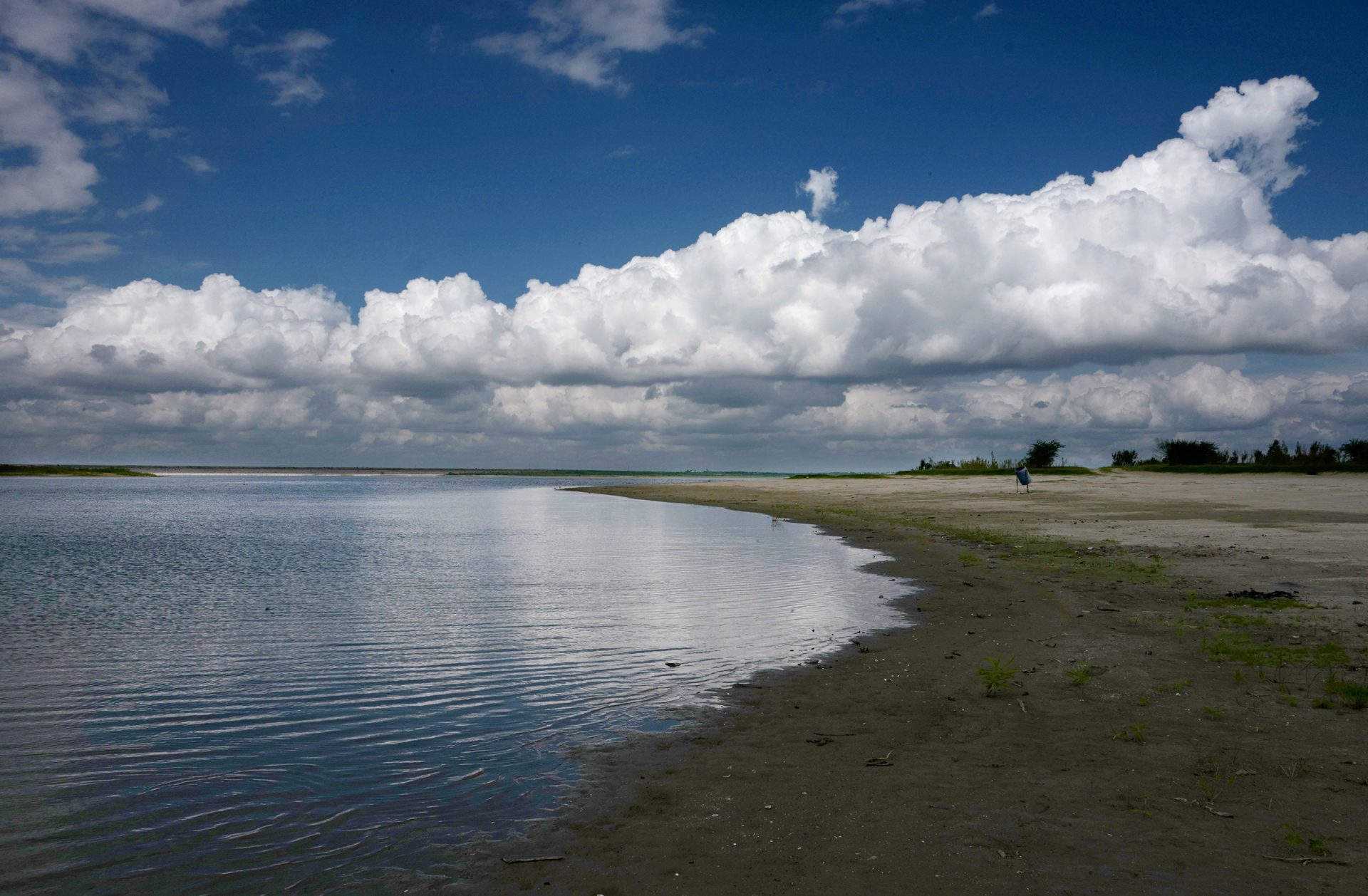|
Only have a minute? Listen instead
Getting your Trinity Audio player ready...
|
MISSION — Farmers caught between a drought and politics expressed their growing fears amidst a failing international water treaty during a roundtable here on Tuesday led by U.S. Sen. John Cornyn, R-Texas, and U.S. Sen. John Boozman, R-Arkansas.
“Unfortunately, the Farm Bill and the Mexico water debt are political footballs getting tossed back and forth in (Washington) D.C. between the two parties,” Brian Jones said.
Jones is the state director for the Texas Farm Bureau District 13, which represents the 13 southernmost counties of the state. He’s also a farmer.
“I think sometimes those in D.C. forget that we, the farmers, are that football. We’re tired of being tossed and punted, and we need help now,” he added.
Cornyn and Boozman visited the Valley to meet with those affected by the Farm Bill and the 1944 Water Treaty.
During the roundtable held at the Mission Event Center, the senators listened to local farmers’ concerns regarding the growing lack of water and how they are being impacted.
Many in the room expressed disappointment with Mexico failing to meet its obligations in delivering water to the United States.
“It is the failure of our friends to the south in Mexico to live up to their treaty obligations to provide water to the Rio Grande Valley,” Cornyn said as the discussion commenced. “This is not a new problem. It’s been a long-standing problem.”
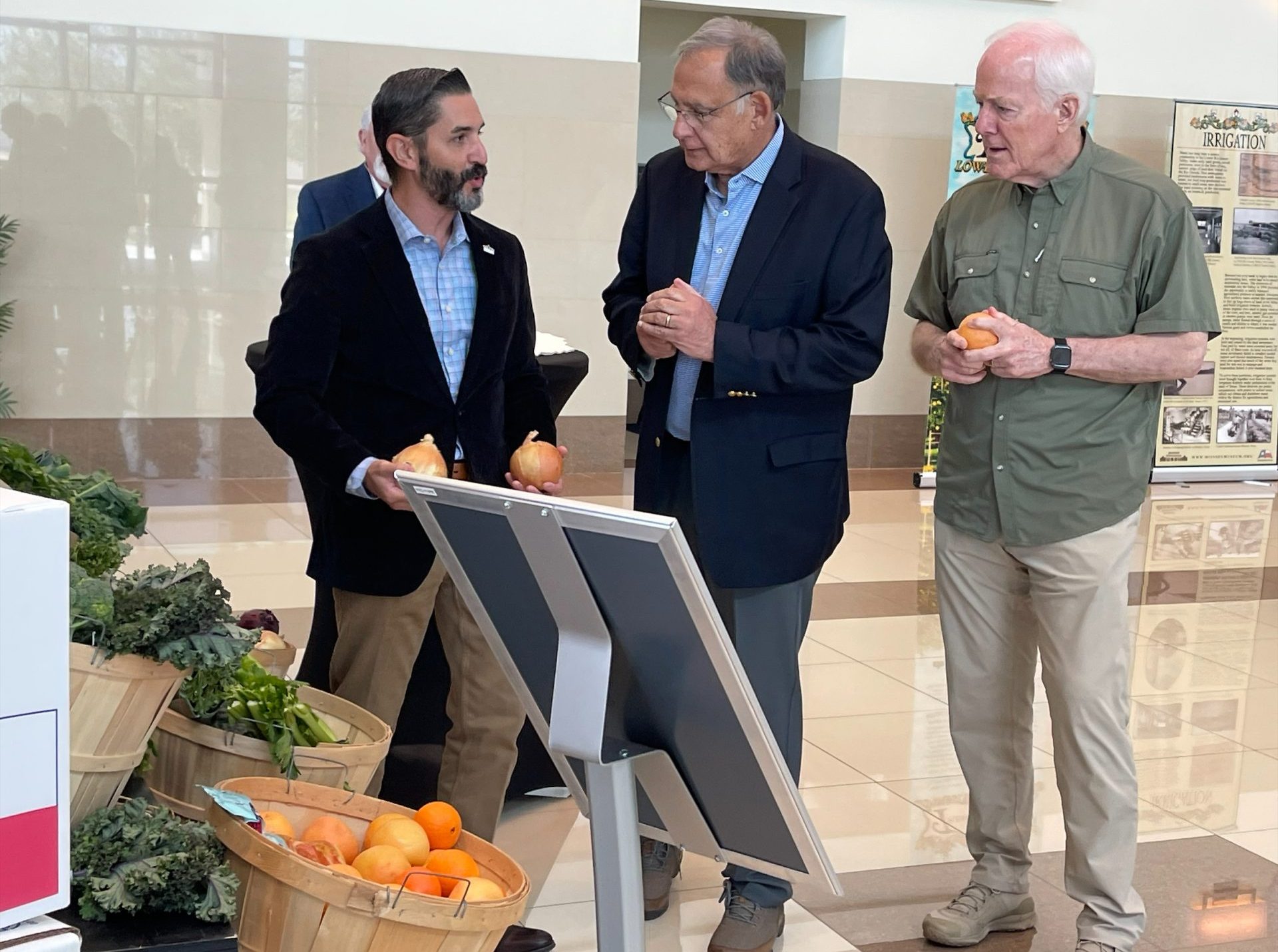
DEFICIT ILLUSTRATED
Sonny Hinojosa, general manager for Hidalgo County Irrigation District No. 2, addressed those in attendance with charts explaining Mexico’s water obligations.
He said that there are only two months left in the fourth year of the current five-year cycle in which Mexico must deliver a total of 1.75 million acre-feet of water to the U.S. So far, Mexico has only delivered 400,104 acre-feet, a deficit of 927,978 acre-feet.
Another chart showed that Mexico had 1.2 million acre-feet of water in their six tributaries at the start of the current five-year cycle in October 2020. That dropped to about 600,000 acres in 2021, but he said that a tropical storm in August 2022 helped increase their storage to 2.95 million acre-feet.
“Mexico did not release any of that water to the United States. It was a missed opportunity,” Hinojosa said.
He said that since then, Mexico has used 2.1 million acre-feet of that water, leaving them with 837,150 acre-feet of water.
As previously reported, the U.S. water supply has hovered around 19% of its 3,375,018 acre-feet maximum capacity throughout the year.
Many farmers in attendance shared their own grievances with the senators, telling personal stories about how they have been impacted by the lower water levels.
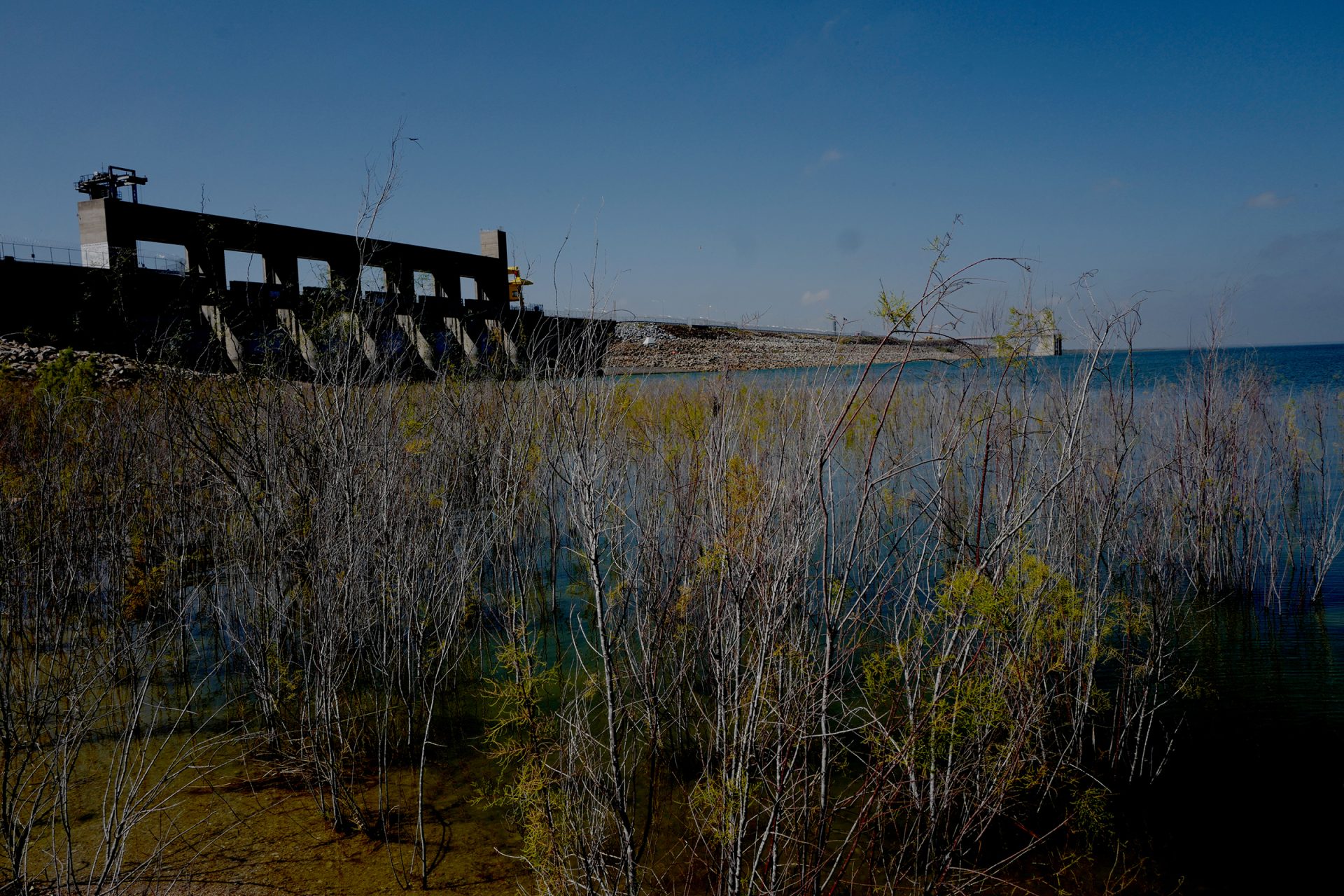
FARMERS DEAL WITH FALLOUT
The fallout from the deficit has trickled down to employees and customers at the grocery store, according to Jones, the farmer and state director of Texas Farm Bureau District 13.
Jones said the ramifications of the lack of irrigation water led to laying off employees and cutting hours for others, as well as a much smaller harvest than in previous years. He said that those issues, along with the fallen commodity prices, farmers are being hit with a “double whammy.”
Will Beckwith is a manager with Beckwith Produce in La Villa. He said that he has been farming with his father and grandfather since he graduated college in 2019, specializing in onions, cabbage, watermelons and row crops.
He said that the repercussions from the lack of water is widespread, and the effects are being felt by everyone from the farmers to the truck drivers to the consumers. He added that he has come to expect little to no relief from the federal government, but having the opportunity to speak directly with the senators gave him some hope.
“I wouldn’t say I’m at ease, but I’m a little more hopeful knowing that there’s a chance that there might be a resolution between these two countries and the issue because it is a treaty that that we signed back in 1944 but we need to deliver on our promises on either side on this treaty, Beckwith said. “We’re neighbors, and we need to share that resource. It’s a shared resource, the Rio Grande River watershed.”
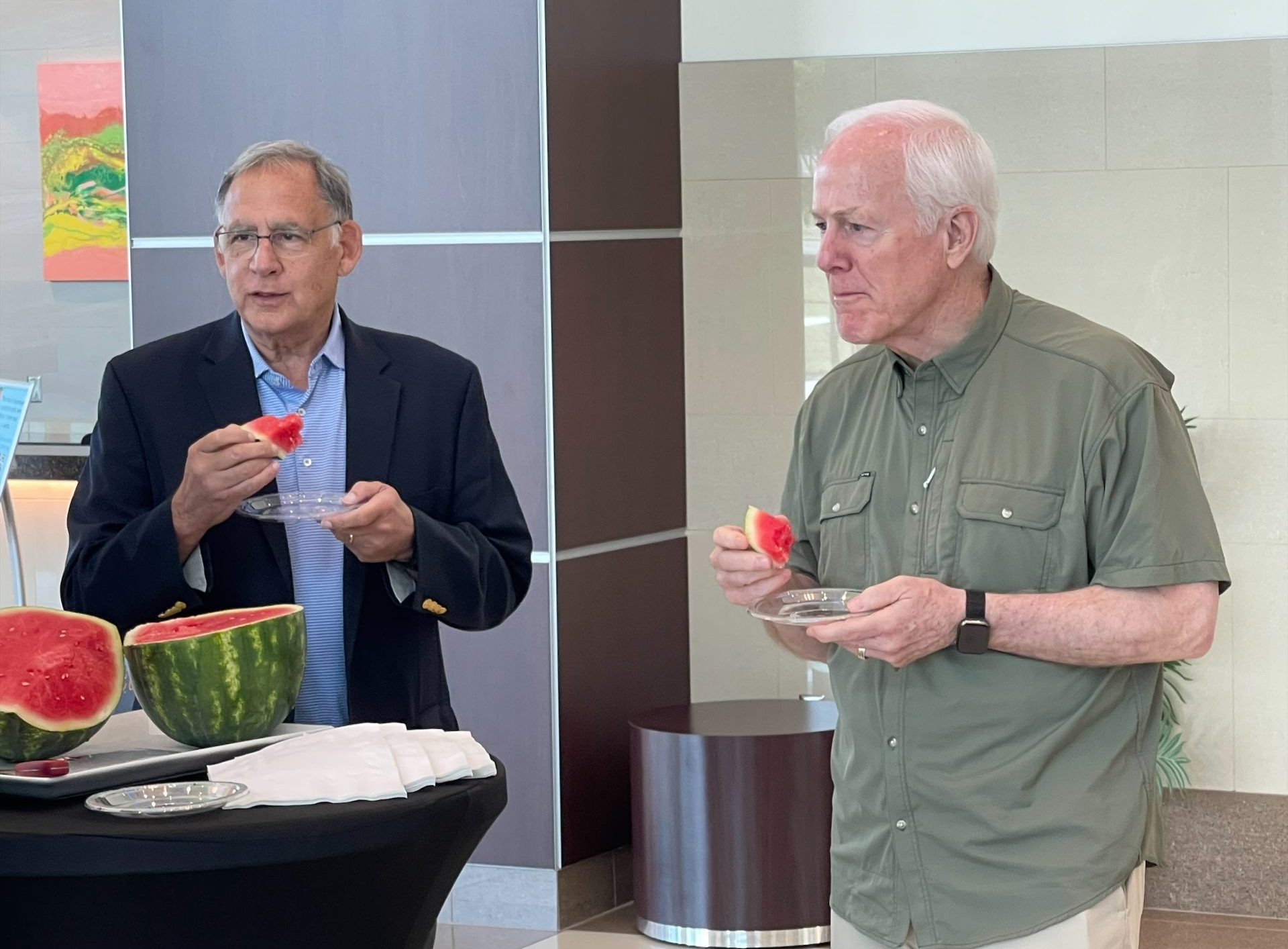
PLEDGE TO DO MORE
Senators observed a display of local produce and sampled watermelon after the discussion.
Boozman, who is a ranking member of the Senate Agriculture, Nutrition, and Forestry Committee, said that hearing first-hand accounts from local farmers about their struggles has given him a new perspective on the situation.
“We see the diagrams in Washington, but it’s just simply different when you’re talking to people on the ground about the damage that is being done, not only now in the future,” Boozman said.
Cornyn called the water deficit problems an “existential crisis for Texas agriculture” and expressed frustration over international relations with Mexico.
“We’ve tried everything from diplomacy to threatening to withhold financing from Mexico and development, and we’re not done yet.”
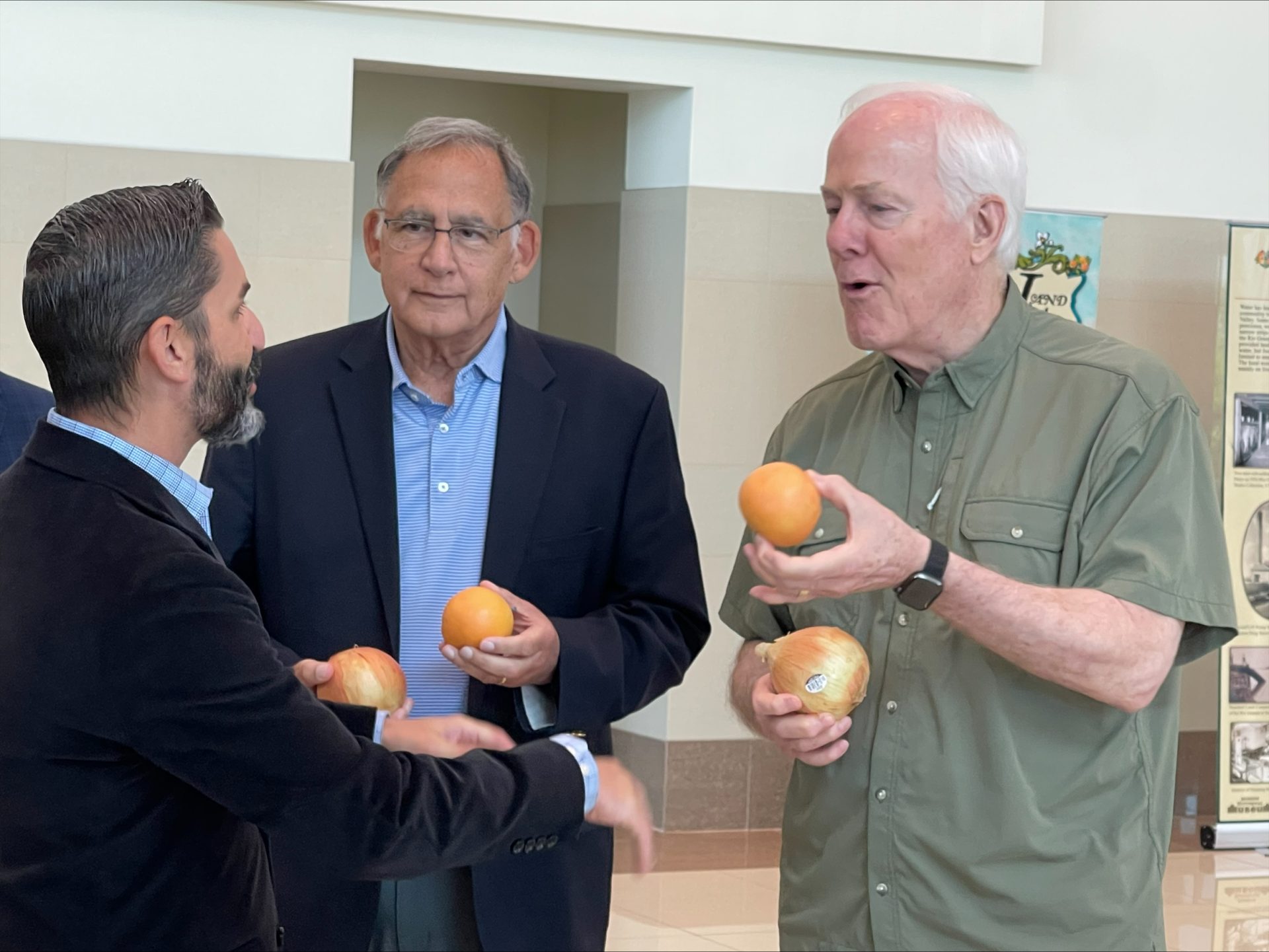
The discussion took place a few hours after it was reported that Mexican President Andrés Manuel López Obrador will be pausing diplomatic relations with the United States. This comes just over a month before Obrador’s successor, President-elect Claudia Sheinbaum, takes office on Oct. 1.
“I don’t know how much more he’s going to be involved in this process, or not,” Cornyn said. “His successor, I hope, will try to do a course-correction over the relationship between the United States and Mexico.”
“We’re not asking for a lot,” he continued. “We’re just asking them to live up to their obligations under the law, under the treaty. That’s all we want and all we have a right to expect.”

